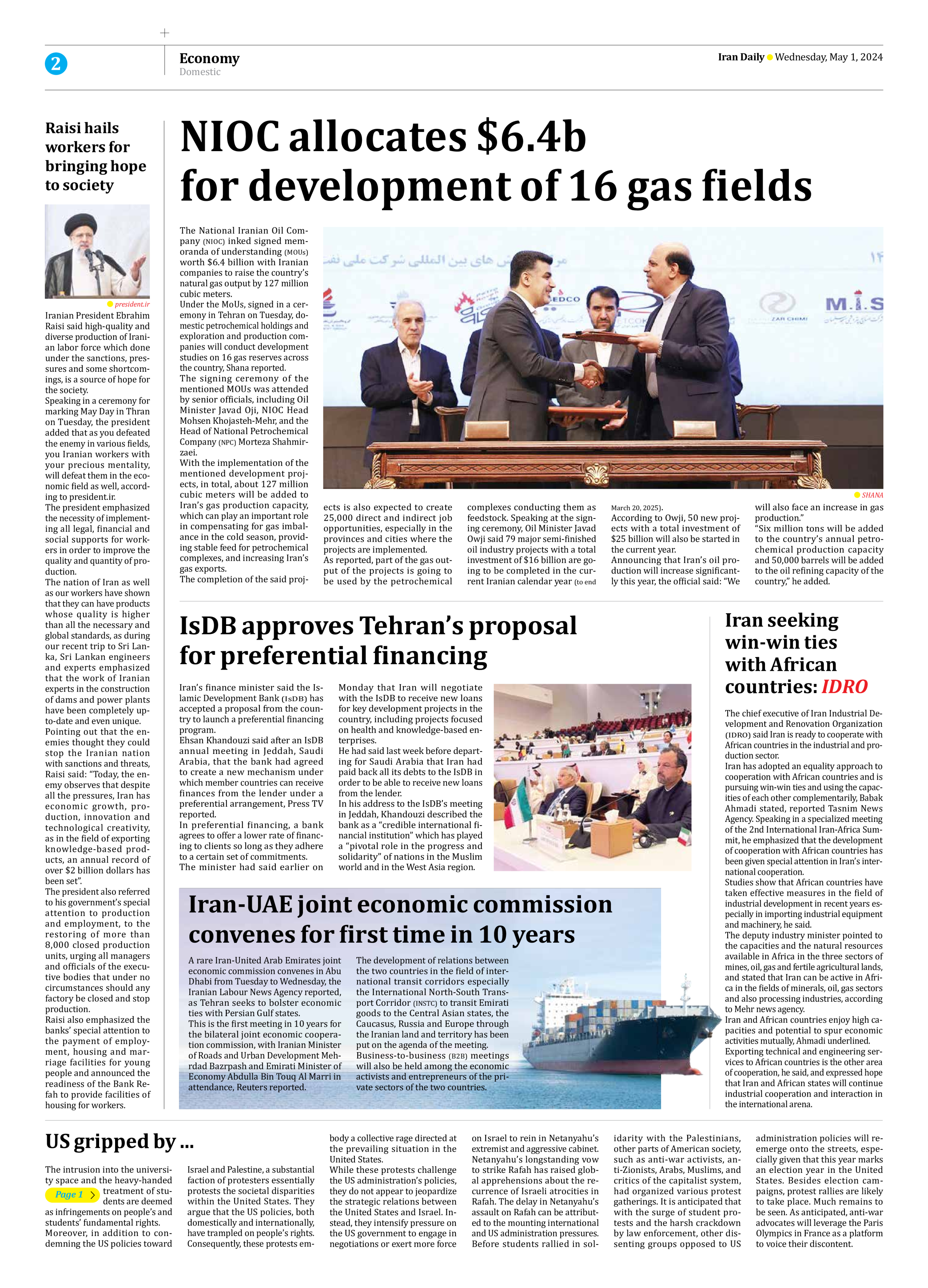
US gripped by ...
The intrusion into the university space and the heavy-handed treatment of students are deemed as infringements on people’s and students’ fundamental rights.
Moreover, in addition to condemning the US policies toward Israel and Palestine, a substantial faction of protesters essentially protests the societal disparities within the United States. They argue that the US policies, both domestically and internationally, have trampled on people’s rights. Consequently, these protests embody a collective rage directed at the prevailing situation in the United States.
While these protests challenge the US administration’s policies, they do not appear to jeopardize the strategic relations between the United States and Israel. Instead, they intensify pressure on the US government to engage in negotiations or exert more force on Israel to rein in Netanyahu’s extremist and aggressive cabinet.
Netanyahu’s longstanding vow to strike Rafah has raised global apprehensions about the recurrence of Israeli atrocities in Rafah. The delay in Netanyahu’s assault on Rafah can be attributed to the mounting international and US administration pressures.
Before students rallied in solidarity with the Palestinians, other parts of American society, such as anti-war activists, anti-Zionists, Arabs, Muslims, and critics of the capitalist system, had organized various protest gatherings. It is anticipated that with the surge of student protests and the harsh crackdown by law enforcement, other dissenting groups opposed to US administration policies will reemerge onto the streets, especially given that this year marks an election year in the United States. Besides election campaigns, protest rallies are likely to take place. Much remains to be seen. As anticipated, anti-war advocates will leverage the Paris Olympics in France as a platform to voice their discontent.
Page 1







